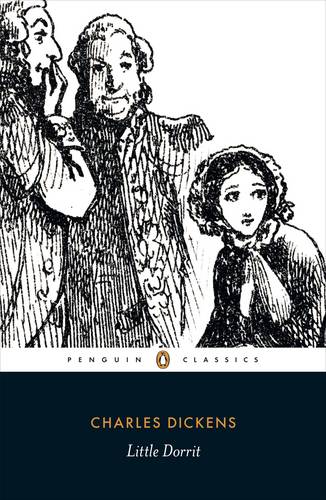Book of a Lifetime: Little Dorrit by Charles Dickens
From The Independent archive: Francine Prose on ‘Little Dorrit’ by Charles Dickens

So conscious of his devoted audience, Dickens might have been pleased to learn that I and quite a few fellow New Yorkers have been devotedly reading Little Dorrit. This mini-craze began when a poet friend heard that the novel was going to be a serialised on TV. He decided that he didn’t want to watch it but to re-read it; others of us decided to do the same. Published in monthly serials between December 1855 and June 1857, the first of Dickens’s later, sadder social novels traces a series of seemingly concentric circles that will eventually be revealed as converging paths to the London debtors’ prison where the eponymous “little” Amy Dorrit lives with her father.
I had read it decades ago in one of those university courses that give students a week or two per Victorian novel, whose plot they can only watch stream by, like trees along a highway. I had enjoyed the speedy ride, but even if I’d had a year, I was too young and inexperienced to feel the awe I feel now for the novel’s depths and its surface dimensions, for the sheer bravado and ambition of its geometry and architectural plan. The fact that Dickens constructed epics in instalments reflects such shocking virtuosity and almost otherworldly powers of concentration that, in a preface to a recent edition of David Copperfield, the novelist David Gates sensibly asked: “Was he a Martian?”
No one knew better than Dickens how to generate suspense, how many separate related mysteries can be sustained at once, how a daring author can keep introducing new characters, long after a more conventional writer would have felt compelled to corral the entire cast on stage. The novel begins in a prison in Marseilles and features two convicts (one a wife-murderer) on a boat quarantined off the coast.

Questions of what happens next are such an integral element that it is hard to reveal details of the plot without ruining its surprises, except to say that Dickens returns to a resonant theme: the mistreatment of children. The scene in which Little Dorrit’s father tries to manipulate her into accepting a suitor she doesn’t love because it will benefit him is one that has been repeated in households far more and less cosy than the Marshalsea jail where Dickens sets it, and where his own father was interned. It’s exhilarating to read the soaring cadenced rants aimed at, among other targets, the Circumlocution Office where all government processes dead-end, and to follow the flights of pure language, the eruptions of admiration or more often, hilarious scorn.
That it can be read in segments makes Little Dorrit ideal for an era when few of us have the leisure to take a month off and read. You can pick it up and put it down. You remember where you are and what’s happened. Dickens has done his part, more than his part, to make you want to go on.



Join our commenting forum
Join thought-provoking conversations, follow other Independent readers and see their replies
Comments